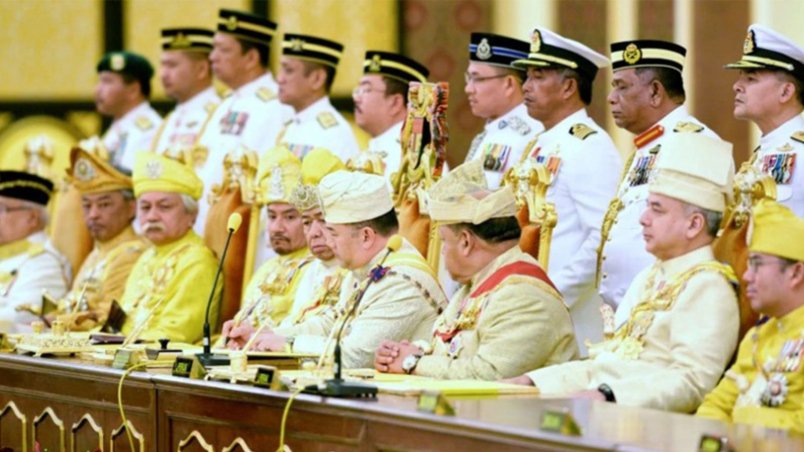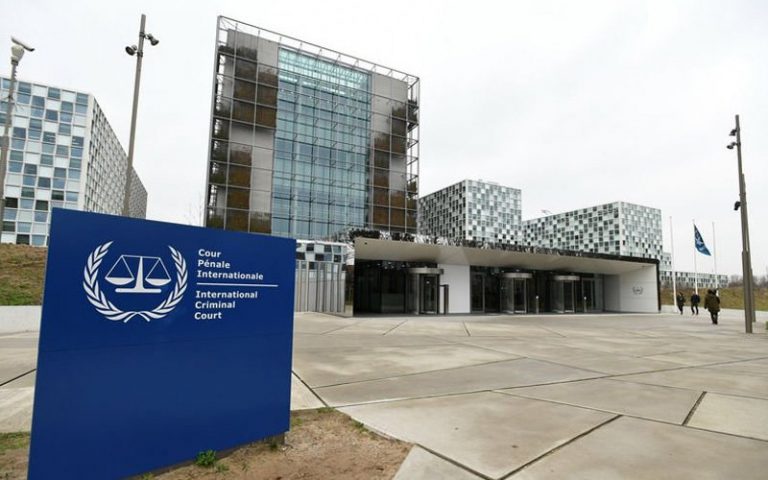The Rome Statute Doesn't Violate Malaysian Constitution. Here Are 5 Things You Should Know
The Johor Sultan previously claimed that the Statute would affect the power of Malay rulers, Malay rights, and the position of Islam.
Following Malaysia's withdrawal from the Rome Statute, a 'biased' document which was allegedly used to convince the Conference of Rulers to reject it was leaked on 7 April
Malay Mail reported that the paper was presented to the Conference of Rulers on 2 April, three days before Prime Minister Tun Dr. Mahathir Mohamad announced the withdrawal.
Arguments made in the paper were debunked by a group of student activists who leaked the document – claiming that the paper was heavily biased as it only presented reasons why the Rome Statute should be rejected.
Views in the paper were purportedly echoed by the Johor royal family prior to Malaysia's withdrawal from the Statute
Johor Crown Prince Tunku Ismail had claimed that acceding to the treaty is unconstitutional as it would damage the position of the Yang di-Pertuan Agong.
Moreover, Johor ruler Sultan Ibrahim Sultan Iskandar recently urged the government to be wary of ratifying international conventions to seek acceptance.
He also warned that treaties such as ICERD and the Rome Statute contravene the Constitution as they affect the power of Malay rulers, Malay rights and the position of Islam.
The student activists who leaked the document have since called for a "healthy" dialogue on the Rome Statute
One of the students, Asheeq Ali, told The Malaysian Insight that the government had not provided explanation on the issue despite citing confusion towards the Statute.
"I want academics to debate the contents... They can come forward to explain their views and have a healthy public debate," Asheeq was quoted as saying by The Malaysian Insight.
The activist also criticised the presentation of the 'biased' paper to the Conference of Rulers.
"Why was this consultation done secretly without the knowledge of the citizens, when the Rome Statute is actually a protection for the citizens from the tyranny of the leaders?" Asheeq said, according to Malay Mail.
Amidst the heated debate over the Rome Statute, here are a few things you should know about it and how it would have affected Malaysia:
1. It governs the International Criminal Court (ICC) – a last resort for justice
According to The Washington Post, crimes that national courts are unwilling or unable to probe or prosecute will fall under ICC's jurisdiction. However, the crimes must have been committed after July 2002 – when the Rome Statute came into effect – unless signatories declare otherwise.
As the first permanent international criminal court, the ICC seeks to complement national courts, rather than replace them. The court does not have its own police force as it relies on its member states to carry out arrests.
The court applies if:
- The suspect is a citizen of an ICC member state,
- The alleged crime was committed in an ICC member state, or
- A case is referred to ICC by the UN Security Council.
121 countries are currently member states of the Statute following Malaysia's withdrawal.
2. The ICC prosecutes people who are accused of the worst crimes of concern to the international community
Four core international crimes are subject to prosecution under the ICC:
- Genocide,
- Crimes against humanity,
- War crimes, and
- Crimes of aggression.
The court also has authority in cases of enforced disappearance, which is listed as a crime against humanity in the Statute.
Following Malaysia's withdrawal from the treaty, Free Malaysia Today reported that this could mean the culprits of enforced disappearance – in connection with Pastor Koh and activist Amri Che Mat – will not be brought before ICC.
3. Apart from children under 18 years old, the ICC has power to prosecute anyone regardless of status
Article 27 of the Statute states that the treaty will be applied equally to all persons regardless of status.
A head of state or government, a member of a government of parliament, an elected representative, or a government official will not be exempted from criminal responsibility under the Statute. Status will also not be considered as a ground for reduction of sentence.
The ICC will also have authority over people who may have immunities under national or international law.
4. The Statute does not violate the Malaysian Constitution
In contrast to the Johor Sultan's claim that the Statute violates the power of Malay rulers and position of Islam, the ICC only prosecutes crimes that fall under the four categories – rather than focusing on race and religion.
Moreover, the Yang di-Pertuan Agong does not hold absolute power to declare war despite being the Supreme Commander of the armed forces under Section 41 of the Constitution. Section 40 states that he is required to carry out his duties as advised by the Prime Minister of Cabinet members.
"The Agong is not responsible for the four condemned crimes identified in the Rome Statute's Article 5. The legal responsibility for any declaration of war and its conduct lies with the Prime Minister and Cabinet members," the Foreign Ministry was quoted as saying by Malay Mail last month.
According to the ministry, the Cabinet was satisfied that the Agong's position and immunity will be retained before acceding to the Statute. However, Article 182 of the Constitution already allows the Agong and state rulers to be prosecuted in the Special Court with consent from the Attorney-General.
It is also notable that the Constitution does not guarantee immunity of anyone under international law.
5. Although Myanmar and Israel are not signatories to the Statute, the ICC has begun preliminary examinations into these countries over alleged atrocities
Preliminary examinations are carried out by ICC prosecutors to gather enough evidence before convincing the court to launch a formal investigation.
The Guardian reported in September 2018 that the ICC concluded it can prosecute Myanmar politicians and military leaders over crimes against the Rohingya people.
Court prosecutors are reportedly conducting a preliminary examination over the alleged deportation of Rohingya people to Bangladesh, among others.
Bangladesh is a state party to the Rome Statute.
The ICC is also examining the Israel-Palestine conflict following Palestine's accession to the Statute in 2015 to accept the court's jurisdiction.
Although Israel is not a signatory to the Rome Statute, a preliminary examination on alleged crimes committed in occupied Palestinian territory is ongoing.
Nonetheless, international human rights lawyer Wayne Jordash told The Guardian last year that it will take years before a full investigation can be launched into these countries.
"Preliminary examinations are measured in years, and so are full investigations," he said.






